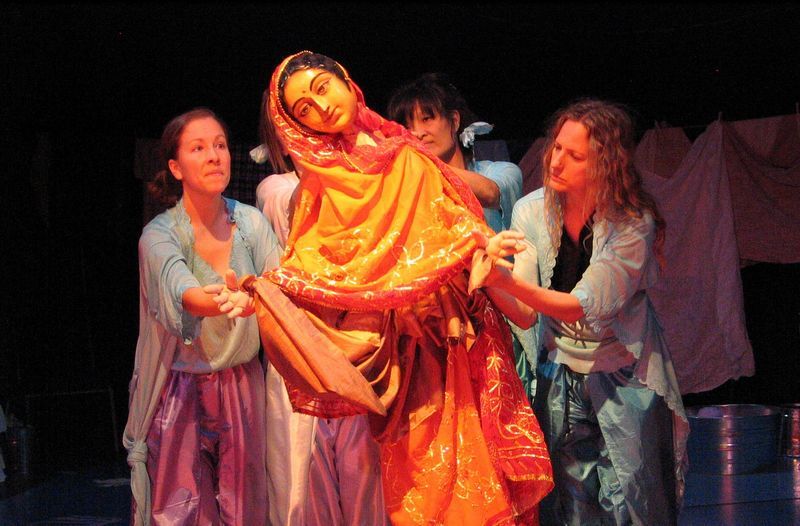A recent theatrical production brought a Pulitzer Center-sponsored article from the pages of the Seattle Post-Intelligencer to the stage in New York City as a part of Jane Catherine Shaw's Thirst: Memory of Water. Drawing on sources ranging from Leonardo's Treatise on Water to first person accounts, the show brought together disparate voices to address the practical and spiritual aspects of one of life's essentials—water.
The work focused on the burden that the crisis places on women, which made Pulitzer Center journalist Sarah Stuteville's account of joining women from southern Ethiopia on their arduous, daily trip to collect water, "A Treacherous Trek to the Crater's Edge," a great fit. Shaw adopted it for the show, and created a character representing Stuteville to tell her story.
For Shaw, the idea started in 1995 when she lived in a small town in Turkey. Shortly after her arrival, she realized with a start that the water in the town was turned off during daylight hours. It was her first encounter with water scarcity, and the experience stayed with her. Years later, a story on NPR about water and conflict grabbed her attention again, and soon she was doing everything she could to learn more about the issue. When a spot opened on the calendar at the LaMaMa Theater last fall, it all came together—she would assemble a work of puppet theater on water.
Shaw thinks that information is too decentralized. Through theater, she works to bring diverse perspectives together, presenting them in a way that people "might make associations in a stream of consciousness way and come to some unusual and new conclusions that they might not have come to from picking up a paper and reading it."
She found inspiration in part from international reporting, work that traditional news organizations are increasingly unable to undertake, a sign that that kind of reporting still has value even if people are not eager to foot the bill for it. Though in Shaw's case, it seems that they were. Her production on the global water crisis drew a total audience of over 300 people.
Shaw seeks fairness in her work, though she acknowledges it's impossible to be completely objective. But, as she says, let's "put it up there, and let's talk about it"—and that's what journalism is about.
For more information on the water crisis, visit the Pulitzer Center's water gateway, DOWNSTREAM.
